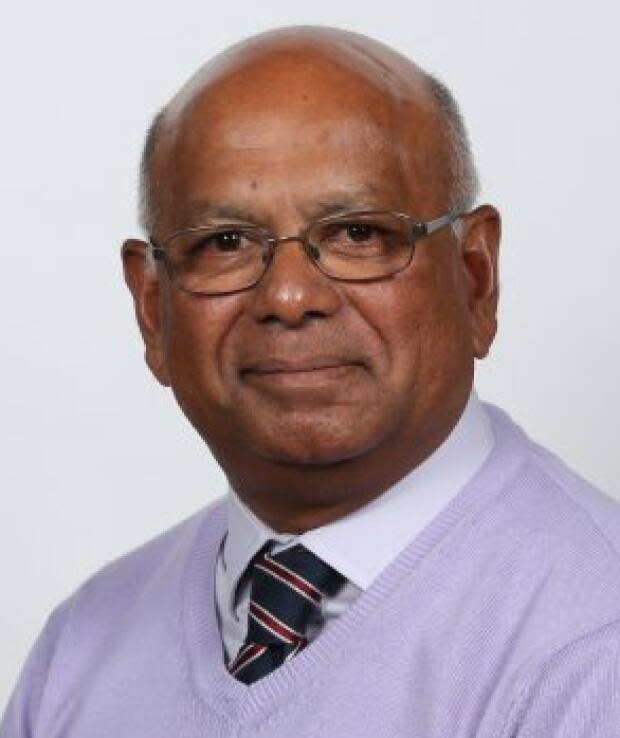Could a national physician registry help Alberta's doctor shortage? Some physicians think so

As Alberta continues to grapple with physician shortages, some doctors point to the concept of a unified national licensing system as one possible relief valve, particularly for rural areas.
The Canadian Medical Association has been advocating for pan-Canadian licensure as one way to address doctor shortages.
An interprovincial registry launched in Atlantic Canada at the beginning of May allows physicians who opt in to practise across provincial borders.
"The ongoing and growing shortage of physicians … is something that we're seeing across the entire country. And because of that, it has fired up this conversation again and made it even more imperative for us to address it," said Dr. Shazma Mithani, an Edmonton ER physician.
She's treating a growing number of patients — with less urgent concerns or with worsening chronic conditions — in the emergency room because they don't have access to primary care.
"In rural Alberta, in particular, not only is there a lack of family doctors in primary care, there's also a lack of specialist care," said Mithani.
"Having pan-Canadian licensure would allow … specialists or subs-specialists in other parts of the country to help bridge that gap [and] allow parts of rural Alberta to have the same access as urban centres."
Mithani believes it would pave the way for more locum physicians to work in Alberta temporarily or for doctors to care for patients virtually, she said.

Expensive and time-consuming
Dr. Marguerite Heyns is an obstetrician gynecologist licensed in B.C., Alberta and the Yukon.
She's now working as a locum in Lethbridge, which is struggling with a severe shortage of these specialists.
"The way that it is currently set up in terms of licensing in each individual province is really just a bit of a money grab and a very time-consuming thing to go through," said Heyns, noting the processes are very similar and require the same nationally regulated qualifications.
She pays $7,600 a year to be licensed in all three jurisdictions.
"It really creates this barrier for physicians to be able to move freely between provinces," said Heyns.
"There's lots of physicians like myself who are willing … to go somewhere for a week or two to relieve our colleagues in areas that are under served, that have trouble with retention."
The College of Physicians and Surgeons of Alberta, which licenses doctors in the province, is involved in discussions on this topic along with other Canadian regulators through the Federation of Medical Regulatory Authorities of Canada.
Those talks revolve around "how to combine national licensure with regulation that is in the public interest and focused on patient safety," according to a spokesperson.
700,000 Albertans without family doctor

In addition to reducing red tape and expense, the president of the Alberta College of Family Physicians believes pan-Canadian licensure would help ensure everyone has access to a primary care provider.
"Right now, there are 700,000 Albertans who are without a family doctor," said Dr. Noel DaCunha, who has a family practice in Westlock.
"The whole concept of patient-centred care, continuity of care, team-based care, reducing the burden on emergency departments … is significantly impaired, especially for our more vulnerable, unattached patients."
DaCunha said his group supports its national body, the College of Family Physicians of Canada, which has been advocating for pan-Canadian licensure for some time.
But he cautions a national physician registry, on its own, is not a panacea.
"There's no magic pill," he said. "[It's] not going to solve our family medicine crisis in Alberta. We need fundamental changes here to go along with that."
For example, he said, reforms are needed in areas that include physician compensation, incentives for work in under-served areas, supports for team-based care, and recruitment of more physicians to specialize in family medicine.
Still many questions
Dr. Rithesh Ram, a family physician in Drumheller, isn't convinced a national licensing registry will be the cure-all.
"I still have a lot of questions with regards to how a national licensing system is going to improve things here in Alberta, and specifically for rural Alberta," said Ram, who is also the president-elect for the section of rural medicine with the Alberta Medical Association.
"I'm not really hearing that physicians in downtown Toronto are going to be coming out to Milk River and Oyen when that need is there. We know the need is there, and I'm not hearing that that is going to happen."
Ram is worried that rather than luring more physicians here, it could drive more doctors away.
"Suddenly, we [could] just have a bunch of people in rural Alberta who want to go work in B.C. or want to go work in Toronto [or] Vancouver, and it's just that much easier for them."
He agrees a suite of changes is needed to address Alberta's physician shortage, including dedicating a proportion of Alberta's new medical seats to training rural family physicians.
"So they are going to enter medical school knowing that when they come out, they're going to be a rural generalist," he said.
"We need that here in Alberta and we needed it yesterday."


